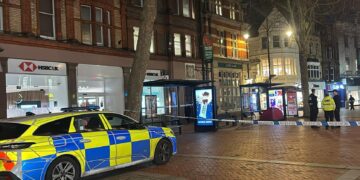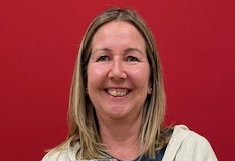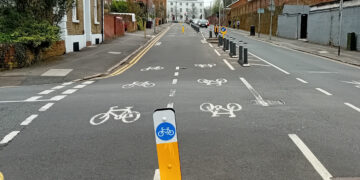Named, contactable officers are now in place across every neighbourhood in the Thames Valley, providing a more direct link between the public and police to tackle crime.
The team details for Newbury and Thatcham have been published on the police website – https://www.thamesvalley.police.uk/area/your-area/tvp/berkshire-west/thatcham/on-the-team/top-reported-crimes-in-this-area
However, based on their funding allocation, Thames Valley Police’s projected growth over 2025 to 2026 will be 68 extra police officers but no police community support officers (PCSOs) or special constables.
It is not clear from various statements if any of these extra officers will be deployed in the Newbury and Thatcham areas.
Inspector Alan Hawkett leads the team in Newbury and Thatcham and has overall responsibility for the entire neighbourhood policing team of sergeants, police constables, PCSOs and police staff.
They are responsible for delivering on neighbourhood policing strategies, directing the deployment of the team and developing relationships with partners and key stakeholders to enable the neighbourhood policing team to work effectively.
Tasked with restoring a connection with the communities they serve, these dedicated officers will provide a guaranteed response for local concerns and enquiries.
Thames Valley Police are also now holding regular public meetings to give residents and businesses a voice on the issues they face, in addition to a dedicated antisocial behaviour lead delivering tailored action plans to tackle these concerns.
This is a milestone in the Neighbourhood Policing Guarantee – a flagship commitment in the Government’s central Plan for Change – aimed at returning visible policing to communities.
The number of people who regularly see police patrolling in their local area has halved in the past decade, while shoplifting has soared to record levels across the country and latest statistics show 19,397 antisocial behaviour incidents in Thames Valley.
In the outer Newbury areas the most common crime reported last year was for violence and sexual offences.
There were 80 with 43 antisocial behaviour crimes reported, 24 criminal damage and 24 public order offences.
In the Thatcham area, 181 crimes were reported in May 2025 shown on the crime maps, but 348 incidents occurred in the area and Thames Valley Police could not map the crime to a location, and therefore these are not on this map.
Violence and sexual offences again top the list with 64, antisocial behaviour 53, public order 12 and other crime 52.
Home Secretary Yvette Cooper said: “Communities are sick of the antisocial behaviour and shop theft blighting their town centres.
“There are too many neighbourhoods across the country who simply do not feel safe.
“A connection between the police and public has been lost for too long but restoring visible officers to our streets and giving communities a proper named contact will rebuild those bonds with the communities they serve.”
Residents can find their named officer on the Thames Valley Police website or local Facebook pages.
Temporary assistant chief constable Mike Loebenberg, Thames Valley Police lead for Local Policing, said: “We welcome the government’s commitment to the Neighbourhood Policing Guarantee as it complements a lot of work already under way within the Thames Valley to protect our communities.
“We have more local neighbourhood officers patrolling and working with local residents and businesses to understand their concerns which they use alongside crime data and local intelligence to identify local priorities to focus on.
“I’m proud of the work we’ve already achieved in the Thames Valley to improve our response to anti-social behaviour, increase the number of shoplifting offences being sent to court and to ensure our dedicated neighbourhood officers are able to focus their time in their communities.
“We know there is more to do and that the Government supports our force wide prioritisation of neighbourhood policing to become an excellent police force trusted by all our communities.”
John Hayward-Cripps, chief executive, Neighbourhood Watch, said: “This initiative reflects what many Neighbourhood Watch members want; responsive policing that prioritises local relationships.
“This is so important because people stop reporting issues when they don’t have confidence that something will be done.
“We know that successful community policing takes time.
“Having named and contactable officers is an extremely positive step, the most effective neighbourhood policing models combine targeted approaches with genuine community engagement.
“Working with communities as partners rather than passive recipients, should deliver the visible, community-based policing that not only keeps people safer, but builds confidence and encourages all of us to play an active role in our communities.”
























